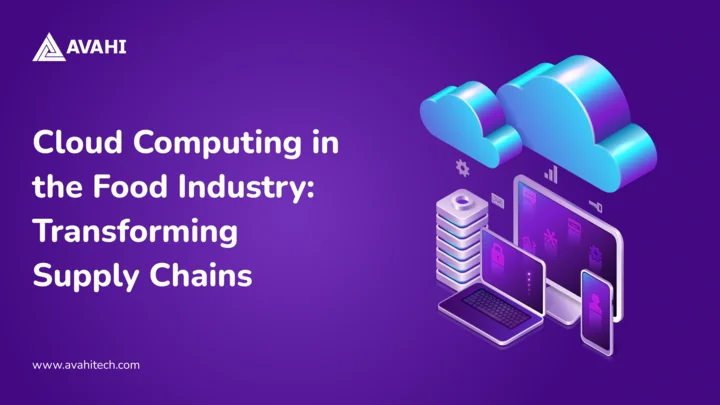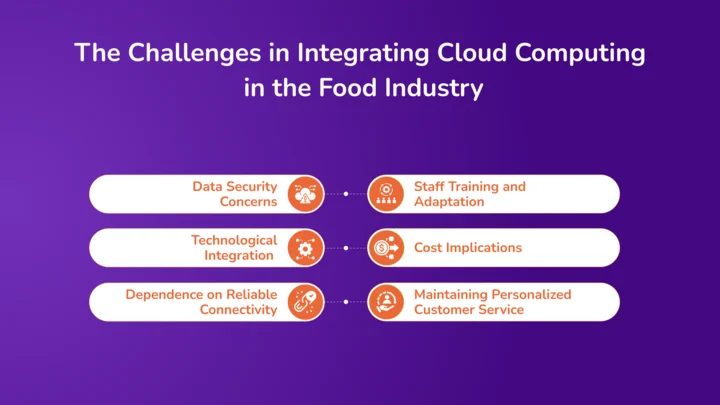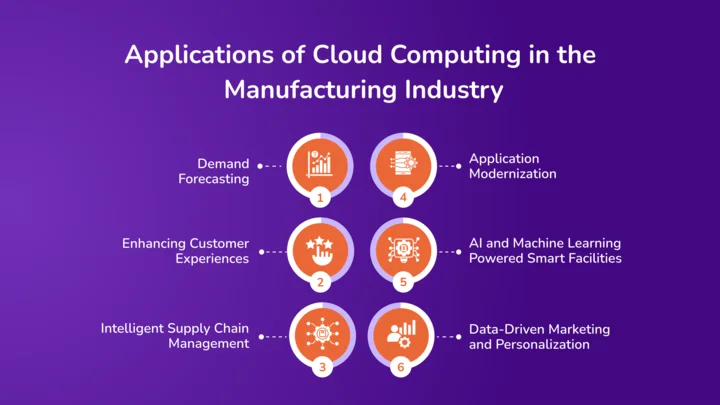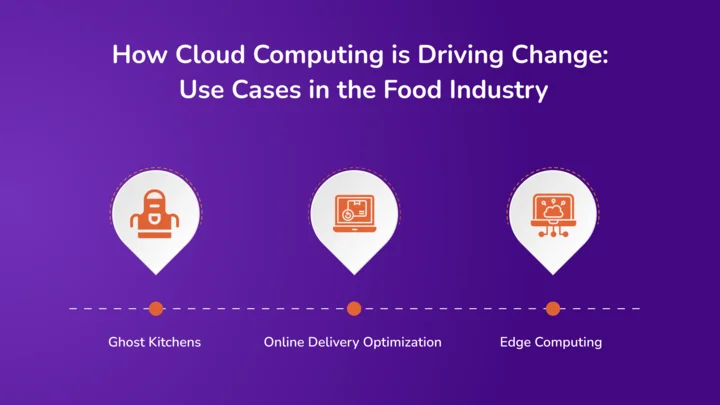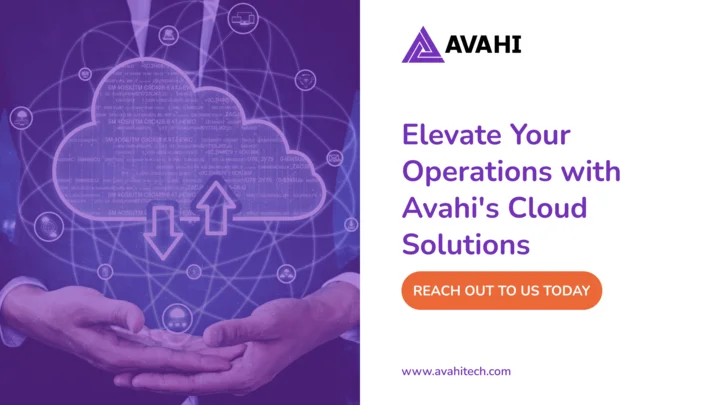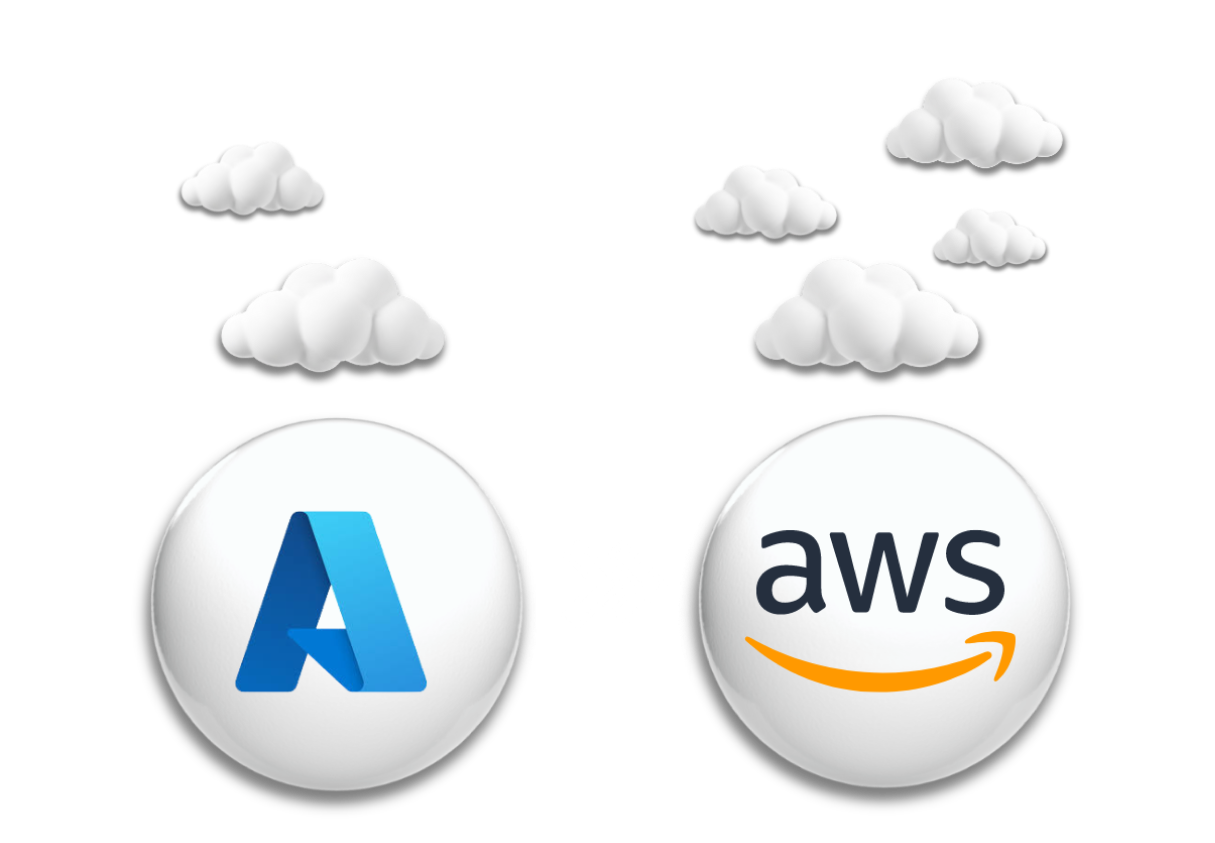The global food delivery market has soared to over $150 billion, more than tripling since 2017. This market has more than doubled during the COVID-19 pandemic in the United States, building on a solid historical growth rate of 8 percent.
The pandemic has only fueled this growth, turning platforms like DoorDash, Grubhub, and Uber Eats from conveniences into essentials for both emerging and established restaurants.
These services have simplified complex operations, enabling you to engage in the digital space without developing independent applications. These platforms do more than deliver food; they provide a digital lifeline, simplifying complex operations so you don’t have to build your systems. Integrating into these robust ecosystems frees up resources to focus on what you do best—serving delicious meals.
Cloud computing is not just enhancing delivery logistics; it’s also revolutionizing food safety. The U.S. Food and Drug Administration (FDA) has utilized cloud technology to launch its OpenFDA platform. This cloud-based system allows for quick searches, queries, and retrieval of massive datasets directly from the FDA’s records, ensuring that food safety standards are met more efficiently. Looking ahead, integrating more sensors and advanced algorithms promises to make the food industry even more efficient. Imagine a world where food production waste is drastically cut, and a seamless connection from farm to fork significantly reduces our environmental footprint.
Among this shift, cloud computing has become the backbone of the food industry. It’s not just about keeping up with technology but making it work for you. From optimizing delivery routes to enhancing food safety with real-time data from cloud-based sensors, the impact is profound.
This blog will explore how cloud computing in the food industry redefines the art of delivery and food safety.
The Challenges in Integrating Cloud Computing in the Food Industry
While adopting cloud computing presents numerous opportunities for the food industry, several challenges can impede its seamless integration. Understanding these obstacles is crucial for businesses looking to utilize the full potential of cloud technology.
Data Security Concerns
Ensuring the safety of sensitive customer and business data is paramount. As restaurants increasingly rely on cloud-based solutions to store and manage their data, the risk of cyber threats grows. Implementing robust cybersecurity measures and compliance with data protection regulations are essential to mitigating these risks.
Technological Integration
Many restaurants operate with legacy systems that are not readily compatible with newer cloud technologies. Transitioning from traditional IT infrastructure to a cloud-based system often requires significant technical overhaul and investment, which can be a substantial barrier, especially for smaller establishments.
Dependence on Reliable Connectivity
Cloud computing solutions depend heavily on consistent and reliable internet connectivity. This can be a significant challenge in regions with unstable internet access, potentially disrupting daily operations and affecting the customer experience.
Staff Training and Adaptation
Adopting new technologies necessitates changes in operational procedures and can require extensive staff training. The shift to cloud-based systems involves a learning curve that can initially hinder productivity and requires time and resources to overcome.
Cost Implications
Although cloud computing can be cost-effective in the long run, the initial setup and migration costs can be considerable. Budget constraints can deter smaller restaurants from adopting cloud solutions despite the potential long-term savings and efficiency gains.
Maintaining Personalized Customer Service
As more processes become automated and data-driven, maintaining a personal touch in customer service can become challenging. Ensuring that technology enhances rather than detracts from the customer experience is critical to successful integration.
By addressing these challenges, the food industry can better position itself to leverage cloud computing technologies, enhancing efficiency and customer satisfaction while navigating the complexities of a digital transition.
Advantages of Cloud Computing in the Food Industry
Cloud computing is revolutionizing the food industry’s operations. It offers significant benefits that help businesses adapt to changing market demands while maintaining high efficiency and security standards. Let’s explore these benefits in detail.
Cost Efficiency
Utilizing cloud services can minimize the need for physical servers and the required maintenance. This shift reduces the space and energy you consume and lowers your IT costs. Furthermore, cloud computing employs a pay-as-you-go model, which means you only pay for the resources you use. This approach makes it easier to manage your budget and reduces wasteful spending.
Scalability
The food industry can be unpredictable, with fluctuating demand due to seasonality, trends, and other market dynamics. Cloud computing offers the flexibility to scale your computing resources up or down as needed without a significant upfront investment in physical infrastructure. This scalability ensures you can handle peak times without disruption and scale back to reduce costs when demand drops, maintaining operational efficiency throughout.
Enhanced Security
Data security is critical in the food industry, where protecting sensitive customer information and complying with industry regulations is paramount. Cloud providers invest heavily in security technologies and protocols to safeguard data, offering a level of security that can be difficult and costly for individual businesses to achieve on their own. Moreover, cloud services ensure that data is regularly backed up to multiple locations, protecting against data loss due to accidents or cyber-attacks.
Sustainability
Cloud solutions reduce the carbon footprint of earlier IT operations by optimizing resource management. Less energy is used for server maintenance, cooling, and physical space, helping your business minimize its environmental impact. Additionally, the efficiency gained from cloud computing can reduce food waste and improve resource allocation, contributing further to sustainability efforts.
Applications of Cloud Computing in the Manufacturing Industry
Below is a detailed exploration of how cloud computing is applied within the food industry.
Demand Forecasting
Accurately predicting consumer demand is crucial for maintaining optimal inventory levels and reducing waste. Cloud-based AI and machine learning solutions analyze historical sales data, market trends, and external factors to provide precise demand forecasts.
This enables you to proactively adjust production schedules and inventory management, ensuring supply aligns with anticipated demand.
Enhancing Customer Experiences
Cloud computing facilitates the development of connected solutions that improve customer interactions.
For instance, integrating Internet of Things (IoT) devices with cloud platforms allows for the real-time monitoring of restaurant operations. Staff can receive instant notifications when beverage dispensers need refilling, restrooms require attention, or tables become available, leading to a more efficient and satisfying customer experience.
Intelligent Supply Chain Management
Managing a complex supply chain requires real-time data access and analysis. Cloud-based platforms enable the collection and processing of vast amounts of inventory, logistics, and consumer preferences data.
This intelligence allows you to make informed decisions, optimize operations, and respond swiftly to market changes, thereby enhancing the overall efficiency of your supply chain.
Application Modernization
Legacy systems can hinder scalability and innovation. Migrating these applications to the cloud introduces advanced capabilities, such as improved scalability, reliability, and cost-efficiency.
Modernizing your existing business systems, production software, and Enterprise Resource Planning (ERP) solutions can better meet current business needs and position your organization for future growth.
AI and Machine Learning Powered Smart Facilities
Ensuring product quality and safety is paramount in the food industry. Implementing cloud-based AI and machine learning technologies enables computer vision to detect food contamination, assess freshness, and grade quality faster and more accurately than traditional human inspection. This leads to higher standards of quality control and compliance with safety regulations.
Data-Driven Marketing and Personalization
Understanding customer preferences is essential for delivering personalized experiences. Cloud computing allows the integration of AI, machine learning, and data analytics to analyze customer data and behavior.
This analysis enables you to make recommendations and create dining experiences that resonate with individual customers, fostering loyalty and increasing satisfaction.
These technologies enhance efficiency and product quality and provide the agility to adapt to the dynamic food and beverage market.
How Cloud Computing is Driving Change: Use Cases in the Food Industry
The food industry is rapidly adopting new technologies to meet evolving consumer demands and streamline operations. Here are some of the use cases of cloud computing applied in the food industry:
Ghost Kitchens
Virtual or dark kitchens represent a significant shift in the food delivery business. These facilities focus solely on food preparation without the overheads associated with dine-in restaurants, such as front-of-house operations and dining space.
By reducing these costs, ghost kitchens can rapidly scale operations and expand their reach, efficiently meeting the increasing demand for delivery services.
Online Delivery Optimization
With the rise of platforms like DoorDash, Uber Eats, and Grubhub, online delivery has become a cornerstone of modern dining. These platforms provide restaurants with digital infrastructure, enabling even small-scale operations to reach a wider audience.
The integration of sophisticated data analytics helps these services optimize delivery routes and times, ensuring hot and fresh meals are delivered promptly and enhancing customer satisfaction.
Edge Computing
Edge computing plays an essential role in streamlining online delivery services by processing data closer to the source of information. This technology reduces latency and speeds up data processing, enabling real-time route optimization and order-dispatching decision-making. For restaurants and delivery services, edge computing means quicker response times, fewer errors, and a more dynamic allocation of resources to where they are most needed.
These innovations are reshaping how food is prepared and delivered and setting new standards for efficiency and customer engagement in the food industry.
Elevate Your Operations with Avahi’s Cloud Solutions
Avahi specializes in delivering innovative cloud solutions that address your unique business challenges. As your dedicated AWS Cloud Consulting Partner, we are committed to simplifying your cloud journey through seamless adoption, migration, and application modernization.
Our Services Include:
- Adoption and Migration: Migrate your legacy applications or workloads to AWS for enhanced reliability, scalability, and performance.
- DevOps: Unlock the power of your data with advanced analytics and machine learning capabilities.
- Cloud Staffing Services: Access top-tier talent to support and drive your initiatives, ensuring a seamless and effective cloud transformation.
Want to explore how Avahi can help you simplify, modernize, and excel in your cloud journey?

